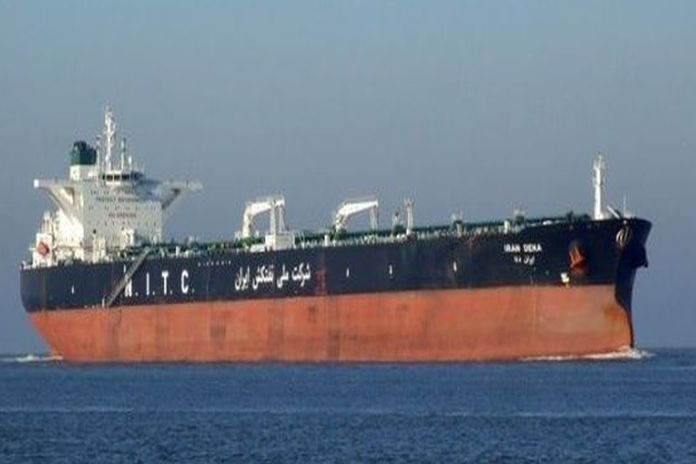CARACAS, Venezuela, (teleSUR) — Saturday evening, May 23, the Fortune, an Iranian-flagged vessel, reached Venezuelan jurisdictional waters carrying approximately 45.5 million gallons of gasoline and related products, aiming to alleviate the gasoline shortage derived from the US blockade.
TeleSUR correspondent Madeleine Gracia, who sailed to international waters to transmit the information in real-time, reported that the National Bolivarian Armed Forces (FANB) did not face any problem receiving the oil tanker Fortune and accompanying it to port.
“The mission proceeded perfectly normally,” Garcia stressed, adding that the other four Iranian tankers – Petunia, Forrest, Faxon, and Clavel – would arrive in Venezuela in a few hours.
Last week, an anonymous senior Trump administration official said that the Iranian fuel shipment “is not only unwelcome by the United States but it’s unwelcome by the region and we’re looking at measures that can be taken,” a statement that, even though never confirmed by US government, was seriously taken by Iran as a threat.
Due to the possibility of a US attempt to prevent the arrival of the tankers, Iranian authorities warned against US interference with commerce between sovereign states.
“Coercing nations into complying with the US illegal demands threatens multilateralism, as the foundation of international relations, and sets a dangerous precedent, paving the way for those who aspire rather divide, not unite nations,” Iranian foreign minister Mohammad Javad Zarif wrote to UN Secretary-General Antonio Guterres on May 22.
A few hours before the Irani tanker’s arrival, Venezuela’s foreign minister Jorge Arreaza spoke with members of the Council on Hemispheric Affairs (COHA) about the negative effect of the US coercive measures.
Through a videoconference, the Bolivarian official told them that the US blockade involves arbitrary and illegal actions against the Venezuelan people.
Furthermore, when the COVID-19 generates health emergencies worldwide, the US harassment becomes a crime against humanity, which prevents the Venezuelan state from acquiring not only supplies for its oil industry but also food and medicine for its people.
“In the Middle East, there is a lot of expectation about this historical event, which challenges the United States and its coercive policy,” as reported by teleSUR correspondent Madelein Garcia.






[…] tanker delivered around 45.5 million gallons of oil and other essential products in an effort to alleviate gasoline and other shortages. Both under the pressure of U.S. sanctions, the two countries have […]